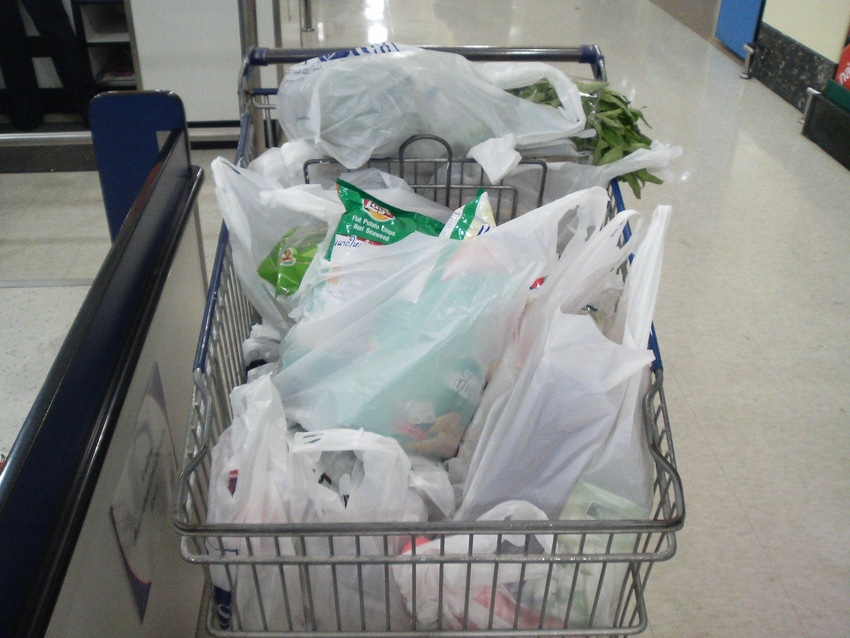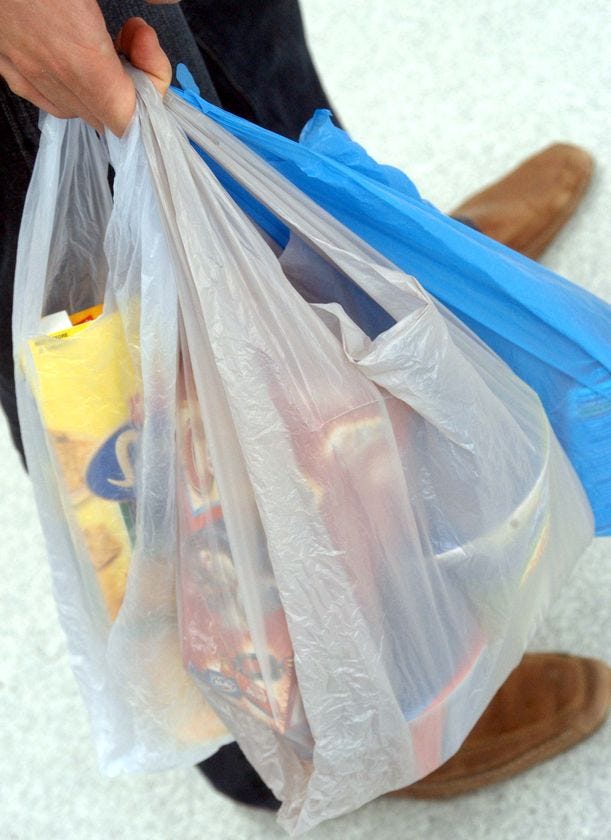European Union looks to reduce consumption of plastic bags
By charging or banning plastic bags, the European Commission believes its new proposal will reduce plastic bag use by 80% in European Union member states.However, this is not an outright EU-wide ban. The EC said that member states will design for themselves the measures they deem most effective, which includes charges, national reduction targets or a ban under certain conditions.
November 4, 2013

By charging or banning plastic bags, the European Commission believes its new proposal will reduce plastic bag use by 80% in European Union member states.
However, this is not an outright EU-wide ban. The EC said that member states will design for themselves the measures they deem most effective, which includes charges, national reduction targets or a ban under certain conditions.
 "We're taking action to solve a very serious and highly visible environmental problem. Every year, more than 8 billion plastic bags end up as litter in Europe, causing enormous environmental damage. Some member states have already achieved great results in terms of reducing their use of plastic bags. If others followed suit we could reduce today's overall consumption in the European Union by as much as 80%," said Environment Commissioner Janez PotoÄnik in a statement.
"We're taking action to solve a very serious and highly visible environmental problem. Every year, more than 8 billion plastic bags end up as litter in Europe, causing enormous environmental damage. Some member states have already achieved great results in terms of reducing their use of plastic bags. If others followed suit we could reduce today's overall consumption in the European Union by as much as 80%," said Environment Commissioner Janez PotoÄnik in a statement.
The proposal follows measures taken by individual member states and from calls by EU Environment Ministers on the Commission to assess the scope for action at the EU level.
Once the European Parliament and the Council approve the proposal, it will enter into effect 20 days after publication in the Official Journal of the EU. Member states will then have 12 months for transposition, and two years to implement the directive.
"The properties that make plastic bags commercially successful - low weight and resistance to degradation - have also contributed to their proliferation in the environment," the EC stated in a news release. "They escape waste management streams and accumulate in our environment, especially in the form of marine litter. Once discarded, plastic bags can last for hundreds of years - mostly in fragmented form."
In 2010, it was estimated that almost 100 billion plastic carrier bags were placed on the EU market. This amounts to every EU citizen using 198 plastic carrier bags per year, which represents more than one bag per day for each European household.
Denmark has a plastic bag tax in place and claims the use of thin plastic bags has dropped to an estimated four bags per person each year. Ireland introduced a bag tax in 2002 and reports a 90% reduction in the use of plastic bags.
Last year, PlasticsToday published a comprehensive report on plastic bag ban and taxes and Sukhraj Poonia, research and communication manager for the UK Packaging and Films Association (PAFA), did not hide his displeasure about bans.
"Plastic bags don't throw themselves into seas or landfills," Poonia said. "Someone sees plastic bags floating around and subconsciously that person might believe plastic bags equal litter, and to me, that is the wrong way to look at it. Littering is morally wrong regardless of the product and this so-called 'war on plastic bags' takes away the accountability of human behavior."
Big opportunity for bioplastics?
By Karen Laird
"Today's proposal of the European Commission aiming to reduce the consumption of plastic carrier bags in the EU is an important first step in the direction of a more sustainable economy," said François de Bie, Chairman of the association European Bioplastics in reaction to the proposals presented by Commissioner Janez PotoÄnik, of the European Union.
The initiative presents an opportunity for legislators to promote biobased products, such as bioplastics, says European Bioplastics, who recommends that the measures brought forward to reduce the consumption of plastic bags should also allow for flexibility in member states when dealing with bioplastic shopping bags. Exempting bioplastics, due to their environmental performance, from any measures intended to reduce the consumption of lightweight plastic carrier bags should be considered.
European Bioplastics advocates the reduction of carrier bag consumption in general, and endorses the basic approach of the Commission's proposal to amend the Packaging and Packaging Waste Directive (PPWD).
"Under this Directive, the Italian plastic bag law would be finally validated. This law banned fossil-based lightweight plastic carrier bags, and allows only single use bags that are compostable according to EN 13432 to be utilized" added de Bie.
European Bioplastics also supports exempting biobased, non-biodegradable shopping bags containing at least 50% biobased content from restricting market regulations. Measures that support bioplastic alternatives have the advantage of addressing environmental issues and driving the development of a biobased economy at the same time.
Due to their biobased content, bioplastic shopping bags have a lower carbon footprint than fossil-based bags, which helps to reduce CO2 emissions.
In countries where organic waste is collected, compostable bags can be used to collect organic waste, making it a dual use bag. Studies have shown that compostable bio waste bags help to increase the amount of bio waste collected and improve the quality of compost. Dual use also reduces the number of bags that are thrown away or end up in landfill. In countries where plastic waste is recovered for recycling, the bioplastic shopping bags can be mechanically recycled into new plastic products. In countries where waste is incinerated, the biobased content contributes to the generation of renewable energy.
About the Author(s)
You May Also Like


